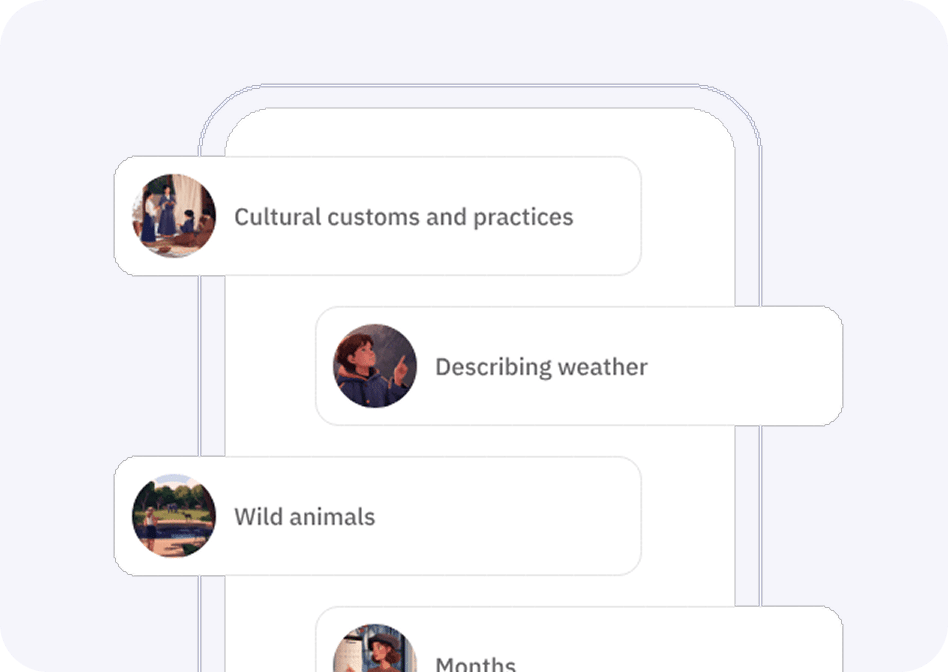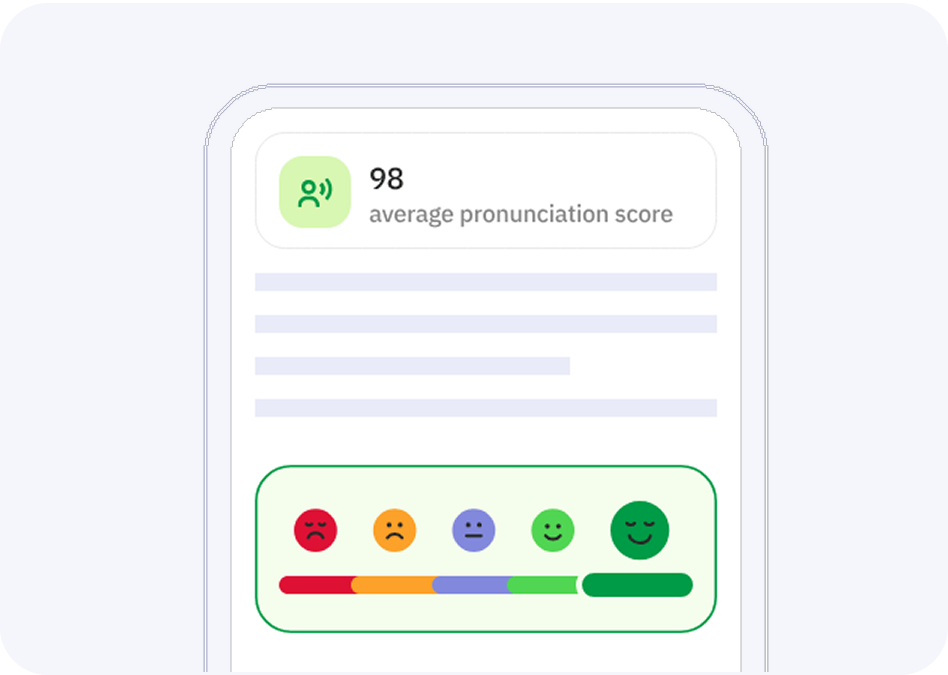Spoken English Practice
Taking the leap to polish your language skills and expand your horizons by choosing to learn Advanced English is an excellent decision that can open many global opportunities. Dive into our groundbreaking programs designed to empower your language proficiency, specifically targeting the extensive English vocabulary needed for C1 and C2 levels.

The talkpal difference

Personalized Education
Everyone absorbs information differently. By utilizing Talkpal's advanced capabilities, we analyze the study habits of millions of users at once to build highly effective educational environments that adapt to the specific needs of every student.

Cutting-Edge Technology
Our main mission is to lead the way in providing accessible and tailored educational journeys for everyone by leveraging the most recent breakthroughs in modern innovation.

Making Learning Fun
We have transformed education into an entertaining activity. Since staying motivated can be difficult in a digital setting, we designed Talkpal to be incredibly captivating so that users actually prefer building new communication skills over playing video games.
LANGUAGE LEARNING EXCELLENCE
The most efficient way to learn a language
Try Talkpal for freeHow to Master Spoken English
1. The Essence of Spoken English Practice
Understanding the importance of “Spoken English Practice” is the cornerstone of successful language acquisition. A solid foundation in Spoken English is indispensable not only to ace global English exams, but also to thrive in an increasingly globalized and English-centric world.
2. Attaining C1 and C2 Level Proficiency
In the international English language standards, C1 and C2 denote advanced proficiency. Achieving these levels means mastering complex structures and a broad lexical field, which can only be affirmed via ‘Spoken English Practice’.
3. Importance of Spoken English in Business Communication
In the modern business landscape, effective ‘Spoken English’ skills are in high demand. Excelling in English communication opens doors to multinational collaborations, international projects, and global visibility.
4. Enhancing Spoken English through Technology
Leveraging technology can significantly aid ‘Spoken English Practice’. From speech-recognition software to AI-powered language tutoring apps, the possibilities are seemingly endless and customisable to personal learning styles.
5. Building Confidence with Spoken English
The quest towards mastering ‘Spoken English’ is quintessentially a journey of building confidence. Shyness and fear often hinder optimal performance, a hurdle that consistent practice can effectively tackle.
6. The Role of a Coach in Spoken English Practice
A proficient coach plays an irreplaceable role in ‘Spoken English Practice’. They not only help to correct minute errors but also encourage language immersion and enhance conversational skills.
7. Spoken English Practice in Day-to-Day Life
Incorporating ‘Spoken English Practice’ in day-to-day interactions can expedite the journey towards language mastery. It helps in absorbing the natural ebb and flow of the language and its nuanced expressions.
8. Tailored Strategies for Spoken English Practice
Different individuals might respond to different strategies when it comes to ‘Spoken English Practice’. Knowing your learning style is therefore critical in picking a methodology that helps you progress efficiently.
9. The Connection between Listening and Spoken English
Listening skills and Spoken English Practice go hand in hand. Active listening enhances the understanding of pronunciation, accent, and the structure of sentences used by native speakers.
10. Continual Spoken English Practice
Spoken English proficiency is not a destination but a journey. Continual ‘Spoken English Practice’, even after achieving C1/C2 levels, ensures consistent improvement in fluency and eloquence.
The most efficient way to learn a language
Try Talkpal for freeFrequently Asked Questions
What is the meaning of C1 and C2 levels in English?
How can I improve my Spoken English skills?
How important is Spoken English in the corporate world?
How can I maintain my Spoken English skills?







